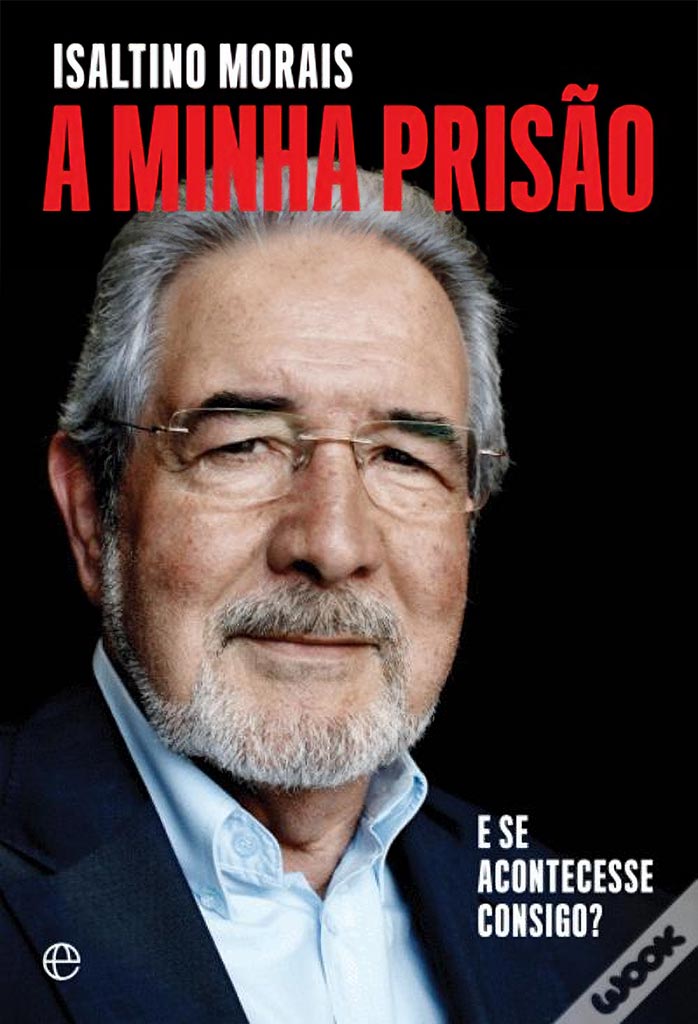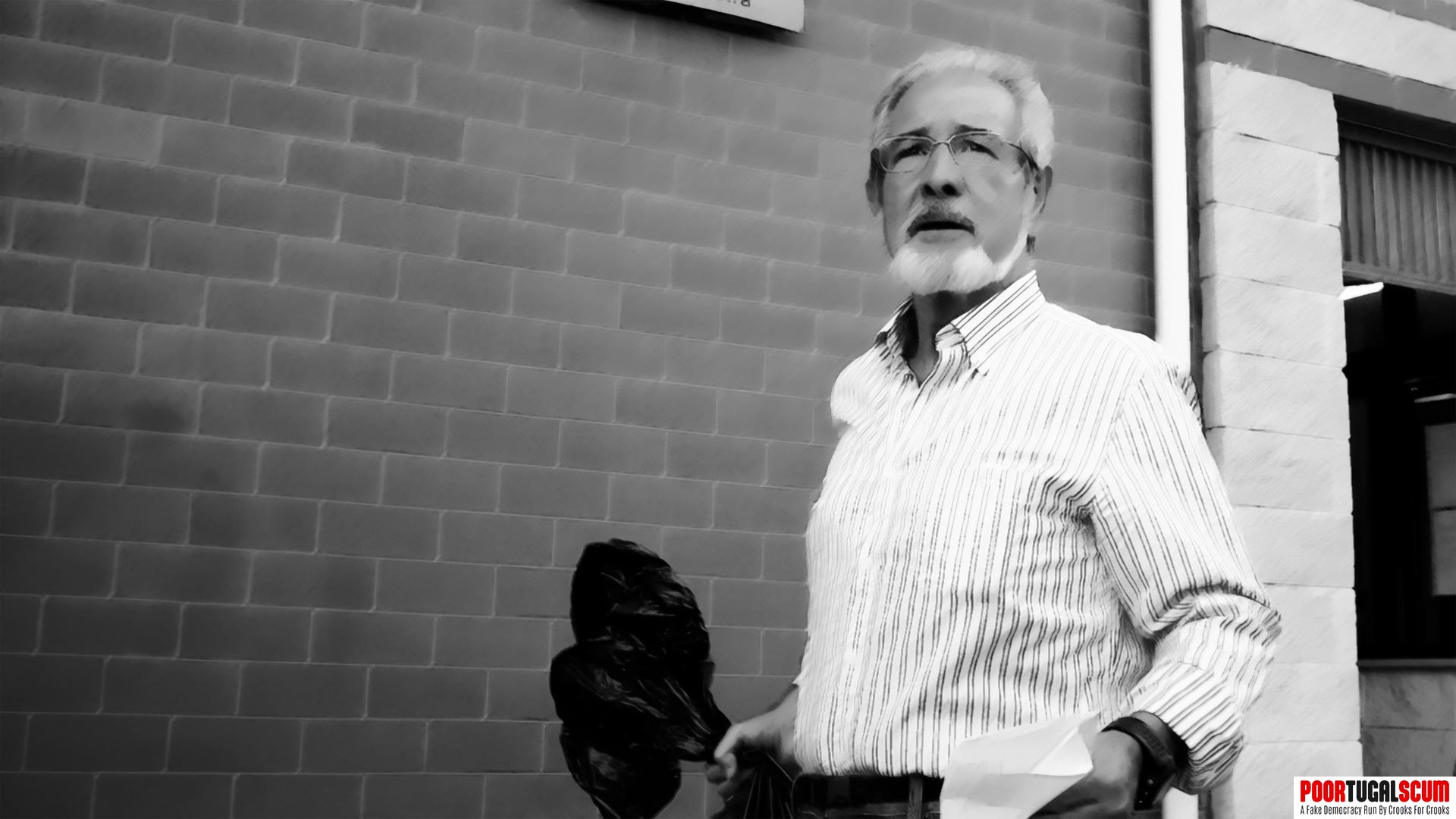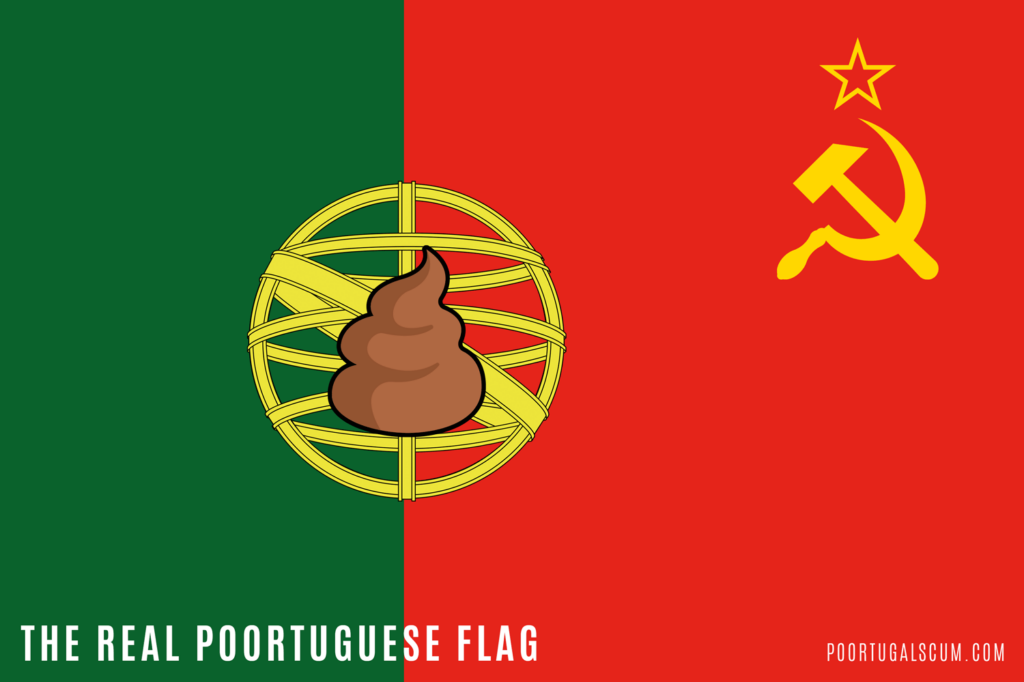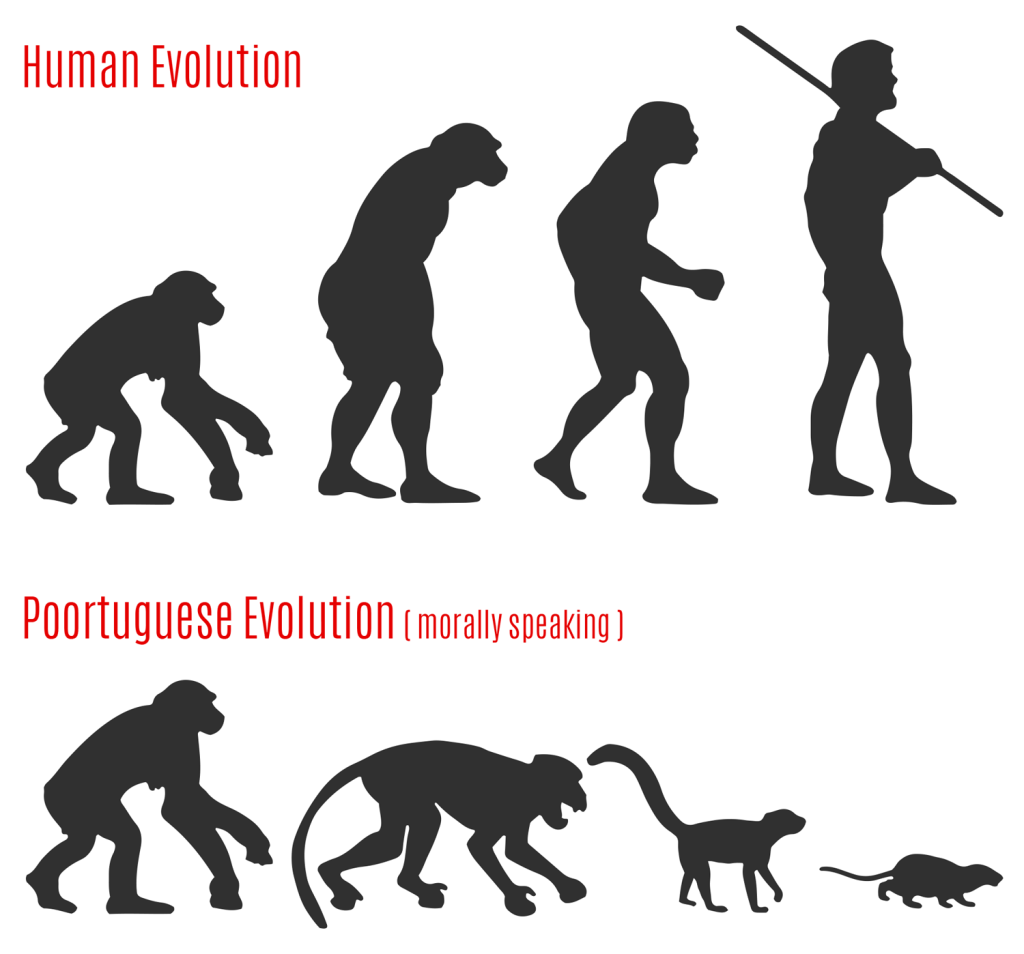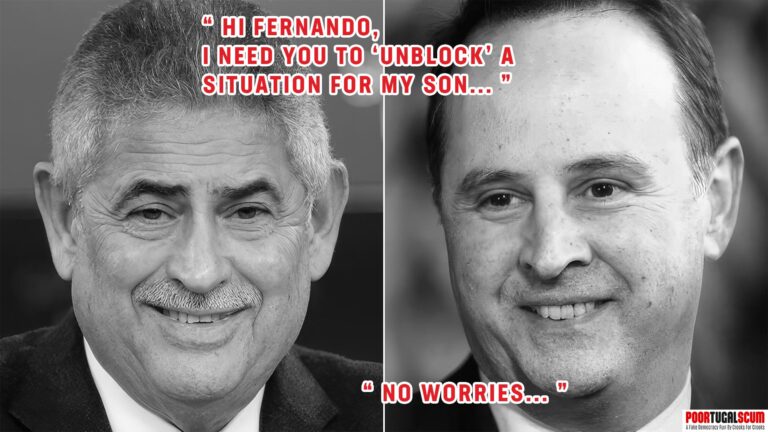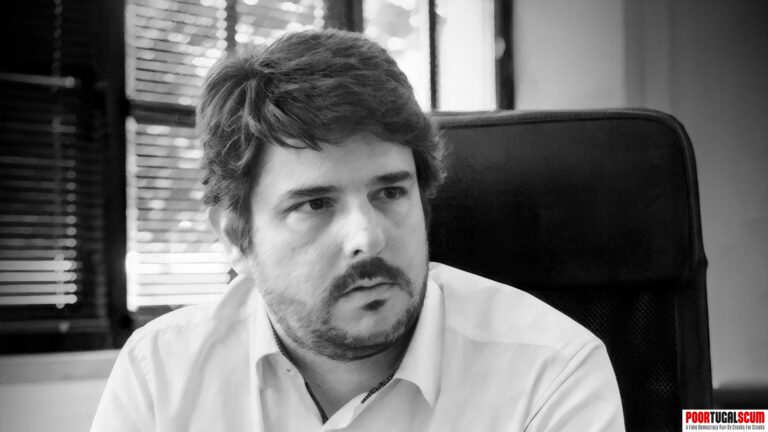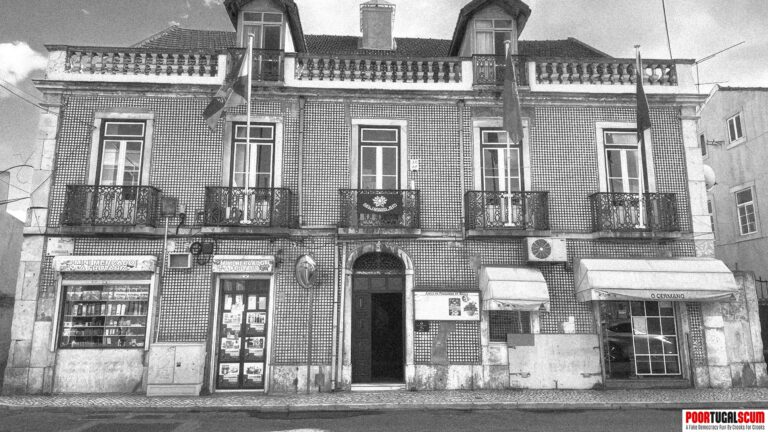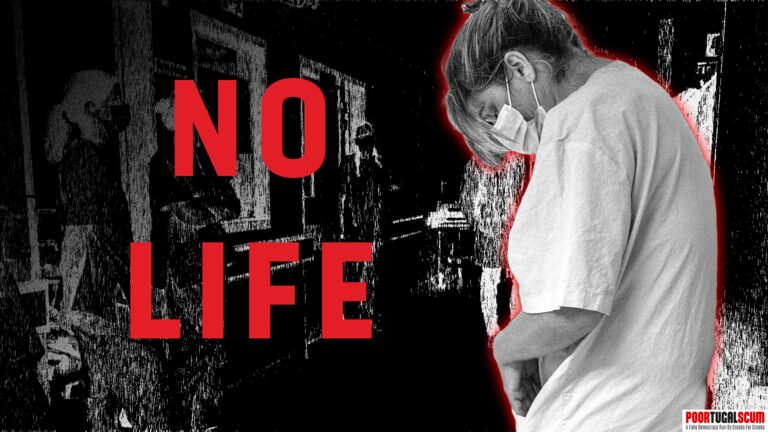On the very rare occasions when Portuguese justice does its job, the Portuguese population reacts in the opposite direction, taking the side of the convicted corrupt.
At the prison gate, hundreds of cars greet him with shouts of “Long live the president” and honking horns.
It should be noted that this condemned corrupt was elected in the council of the country with the highest percentage of graduates and doctorates, and the third with the best quality of life, so imagine what it will be like in the rest of the country!
These absurd situations do not occur in the rest of the EU, of course, but only in some African/South American countries.
Portugal is in the deplorable state it is in, and will surely get worse due to the medieval, retarded and tribal mentality of most Portuguese, but also mainly due to a native dishonesty, much to the despair of the very few sane and decent Portuguese.
Democracy doesn’t work with idiotic and dishonest people and that’s why Portugal will never be Europe, civilized and democratic.
Democracy ONLY works with good, upright people.
This gentleman even had the courage to publish a book, which quickly sold out, entitled “Isaltino Morais – My Prison – What if it happens to you? After leaving prison, this gentleman was treated like a movie star and was invited to several Portuguese television shows where he received many hugs and kisses.
The Portuguese justice system acted in this case, which is very good, but still too insufficient, because the main crime of corruption was dropped (go figure), with the typical tired excuse that “it is very difficult to prove”, and only the crimes of money laundering and tax evasion remained (so one less corrupt in Portugal, sarc.). However, for those outside Portugal, we are obviously talking mainly about a case of corruption along with other aggravating circumstances.
The following article is a translation (mostly MT). You can find the link to the original website at the end of it.
Translated from the Spanish newspaper El País
Condemned for tax fraud and money laundering, the residents vote again for the mayor who steals from them
As soon as you set foot outside of Lisbon, you could already read large billboards, Isaltino has returned. For foreigners, the photo of a man with a gray goatee and doctor’s glasses caused some perplexity. How could you win a municipal election by saying you’re coming back if you’re not Superman? Well, after scrutinizing the votes, Isaltino if he is not Superman, he seems to be. Isaltino Morais got 42% of the votes last Sunday from the residents of his town, Oeiras.
Isaltino thus returned to his rich mayor’s office, a coastal strip between Lisbon and Cascais, where he has always been if his troubles with the Justice system do not prevent it. If jail doesn’t prevent him from doing so, Isaltino has always been the mayor of Oeiras, since he ran for the first municipal elections in 1985. He has won in all the convocations, and only left the mayoralty in 2002 to be appointed Minister of Cities in a Government of the PSD of Durão Barroso. He lasted in the Government for a breath, what it took for the newspapers to extract hidden accounts from him in Switzerland, for which he left the ministry and his party, the PSD.
From that year until now, Isaltino has been in the courts presenting appeals and more appeals to avoid serious sentences and favor the prescription of crimes. In 2009 he was sentenced to seven years in prison, a fine of almost half a million euros and loss of public office, for tax fraud, abuse of power, passive corruption for an illegal act and money laundering. In short, he was convicted of granting licenses to construction companies and the money appearing in a Swiss Isaltino account.
Since then, Isaltino has presented 44 appeals, has escalated all the instances to the Constitutional Court and has lowered them again while the statute of limitations has been reduced. Finally, in 2010, the sentence remained at two years, although the mayor did not go to jail until 2013, where he spent 14 months, a period in which he ceased to be mayor. He is released on probation against the prosecutor’s opposition because “no well-founded and serious reasons have been demonstrated that can support the judgment that Isaltino Morais will not commit new crimes in the future.” The prosecutor does not seem to believe in the reinsertion of Isaltino. Isaltino, Frauderman, already has the absolute majority of Oeiras, a municipality stuck in a real estate bubble to the happiness of its mayor.
Far from Oeiras, on the same days of the elections, the party that governs Mozambique, the former Portuguese colony, Frelimo, decided that the corrupt members of the party should not be ostracized, but quite the contrary, they had to be “resocialized”.
Isaltino is the great resocialized of Portugal.
More related news
Oeiras: I steal but I do
In front of a prison, hundreds of cars honk their horns while their drivers shout the name of one of the inmates. It is about a local politician arrested for corruption. His dauphin won the elections and the people, happy, want to share that moment with their imprisoned hero.
This victory was his. Nobody denies that he stole. He stole but did. This scene does not take place in some small lost town in the Brazil of the colonels. It doesn’t take place in drug-trafficking Mexico or in a new dictatorship born out of the former USSR.
It took place in Oeiras, the municipality with the highest percentage of graduates in Portugal, a democratic and supposedly developed country in the European Union.
Explaining this without being rude to my fellow citizens is not easy. I choose, therefore, to speak of the myths that are shaken by the result of Paulo Vistas and his list of homage to the prisoner Isaltino.
It is not true that the growing disbelief of the Portuguese in democracy and politicians is the result of any ethical requirement. It is not corruption that creates distrust of the political class. Even the most enlightened Portuguese tolerate corruption well, as long as they “leave the work” to themselves. Much less is it impunity that creates revolt.
When justice does its job, voters try to undo it.
Many of those who voted for Isaltino’s list will enthusiastically applaud Paulo Morais’ public interventions and even Marinho Pinto’s diatribes. Corruption bothers them. But what bothers them is not the theft. It is that they are the stolen ones. If the corrupt leaves them something, corruption ceases to be a problem. Because it is only your personal interest, and not the ethical requirement that comes from belonging to a community of values, that determines your political choices. That is why, for many Portuguese people, their rights are rights and the rights of others are privileges, their strike is fair and the other’s strike is a nuisance.
The fight against corruption is not done with inflammatory speeches against politicians. It is done through an idea of solidarity between citizens who see public resources as belonging to all and their misuse as an always serious failure, regardless of the beneficiary. However, contrary to popular belief, Portugal is not a particularly supportive country. Which is normal, taking into account their very high levels of inequality. Solidarity is born from belonging to a community. This belonging only happens when there is empathy. Empathy needs closeness. And proximity requires minimum social and economic equality. Unequal societies are selfish and, therefore, unscrupulous in their collective ethics. And so is Portugal.
The fascination that voters have with independent lists is not just the result of some partisan disease that promotes corruption and cronyism. With that, most voters live without any problem. Distrust of parties is, in Portugal, above all, a distrust of their undemocratic ways of selecting political personnel. A fair and legitimate mistrust (I’ll deal with it tomorrow), because it deprives voters of their choice. But that has nothing to do with any kind of ethical requirement.
Disbelief in the parties also stems from the economic crisis, for which they are blamed. But the alternative that many citizens are betting on is the easiest shortcut: someone who leaves work bypassing the rules and the law.
The majority of voters share the amoral pragmatism of many politicians: as long as there’s something left for me, good morals be damned.
And if the majority of voters are selfish and undemanding, it is natural that politicians are too. After all, we live in a representative democracy.
Those we elect merely represent what we ourselves are. No, the country is not divided between politicians, on the one hand, and the Portuguese, their victims, on the other.
Finally, this episode reminds us that, contrary to popular belief, it is not education that guarantees a healthy and demanding democracy. This lack of demand is not the result of ignorance.
More qualified people are not more ethically rigorous.
The proper functioning of democracy is about rules. It is the definition of a few more inviolable rules that allows not to mix everything in the same bag, as if everything (from the small tax arrears to corruption) had the same gravity and relevance. Define ethical lines that are clear and not clouded with suspicion, where, as everyone fits, nothing becomes really serious. It is these rules that create, even in the minds of voters, an environment of formal demand or an environment conducive to corruption. They are the ones who end up establishing that there are unacceptable practices.
If Isaltino Morais had been stopped the first time he prevaricated and had immediately lost his place, he would not have had the opportunity to create the webs of interests that he created. And he wouldn’t have been able to convey the idea that crime pays.
And that compensates him and the voters, who behave like his accomplices.
It could never be said of him that he “steals but does”. Because the rule would be this: “those who steal don’t do it”. Because not stealing has to be the first condition for doing anything in the State. We don’t need pure politicians, who have never failed as citizens. Because they don’t exist. We need few rules whose violation represents, for everyone, the immediate impossibility of holding public office.
